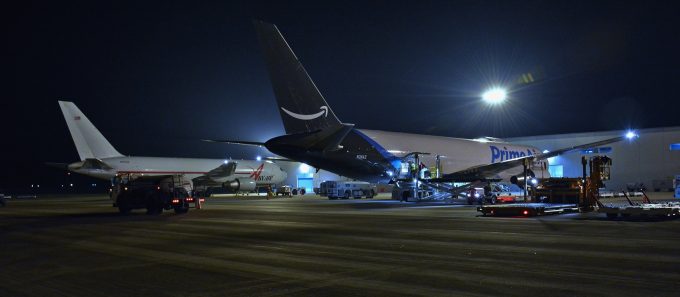China's ecommerce giants revamp strategy to get round new US rules
The ecommerce titans are quickly adapting their business models in the face of greater regulatory ...
GM: RAISING THE ROOF GGM: IN FULL THROTTLE GZIM: MAERSK BOOST KNIN: READ-ACROSSMAERSK: NOT ENOUGHMAERSK: GUIDANCE UPGRADEZIM: ROLLERCOASTERCAT: HEAVY DUTYMAERSK: CATCHING UP PG: DESTOCKING PATTERNSPG: HEALTH CHECKWTC: THE FALLGXO: DEFENSIVE FWRD: RALLYING ON TAKEOVER TALKODFL: STEADY YIELDVW: NEW MODEL NEEDEDWTC: TAKING PROFIT
GM: RAISING THE ROOF GGM: IN FULL THROTTLE GZIM: MAERSK BOOST KNIN: READ-ACROSSMAERSK: NOT ENOUGHMAERSK: GUIDANCE UPGRADEZIM: ROLLERCOASTERCAT: HEAVY DUTYMAERSK: CATCHING UP PG: DESTOCKING PATTERNSPG: HEALTH CHECKWTC: THE FALLGXO: DEFENSIVE FWRD: RALLYING ON TAKEOVER TALKODFL: STEADY YIELDVW: NEW MODEL NEEDEDWTC: TAKING PROFIT

US pilots have slammed ATSG’s lack of readiness for the year ahead, despite the carrier announcing strong full-year results.
After a challenging 2016, in which the carrier recorded a “minor” loss, the US-based operator announced full-year revenues of $1.1bn, up 39% year on year.
During a conference call, chief executive Joe Hete said the results reflected “substantial” gains in operational effectiveness and service expansions.
“We have also benefited from the strong performance of our airlines during a strong peak season,” said Mr Hete.“And 2017 brought us record totals since the change of our business model in 2010.”
That strong peak resulted in fourth-quarter revenue of $323m, up some 46%, leading to a similar level of growth in profits, which hit $80m.
Full-year profits rose by 27% to $268m, with the carrier pointing out the benefits of reductions in premium pilot pay and training, and improved on-time service.
However, the executive council chair of Teamsters Local 1224, Richard Ziebarth, said ABX pilots were “proud” of their role in this growth.
“But, as our company and its shareholders look back at the previous year, they must ask themselves: ‘are we ready for the future?’,” said Mr Ziebarth.
“Many of our veteran pilots – the bedrock of our operation – are nearing the end of their careers.”
As with Atlas – its pilots belong to the same union as ATSG subsidiary ABX Air – the carrier has found itself facing a backlash from its crew. Pilots continue to claim that delayed contract negotiations are resulting in increasing operational risks.
And Mr Ziebarth repeated warnings that failure to address these issues would result in an inability to retain and recruit qualified pilots as demand grows.
“Unfortunately, years of stalled fractious contract negotiations have prevented ABX Air from achieving an updated, industry-standard contract,” he added.
“This greatly inhibits our company’s ability to retain the new generation of pilots needed to build on our success.”
According to the union, 25% of ABX pilots hired in 2016 and 2017 had left for other carriers, with a similar number “actively” seeking opportunities elsewhere.
When asked if the lack of pilot agreement was detrimental to ATSG’s ability to grow its Amazon business, Mr Hete said he believed not.
“Our growth with Amazon is contingent on Amazon’s wants and desires to grow with new aircraft,” he added.
“As for the pilots, they have and continue to do an excellent job for ATSG and had an excellent year in 2017.”
Mr Hete said ATSG had seen an upturn in Amazon business, which accounted for 44% of revenues, while DHL made up 24%, and 7% came from military operations.
Alongside this, he said the carrier had grown its leased freighter fleet and had secured external leases for 50 of its 61 Boeing 767s.
“We continue to see robust global demand for our expanding 767 freight fleet, and are confident we’ll have customers waiting for these,” said Mr Hete. “And 87% percent of our 767 fleet will be under multi-year dry leases by the end of 2018.”
ATSG’s Cargo Aircraft Management subsidiary has purchased commitments for three more 767-300 aircraft this year for freighter conversion, in addition to the eight already slated for conversion and deployment this year.
“We expect strong returns from these investments, thanks to our experience in acquiring, converting, and deploying mid-size freighters,” he continued.
Comment on this article